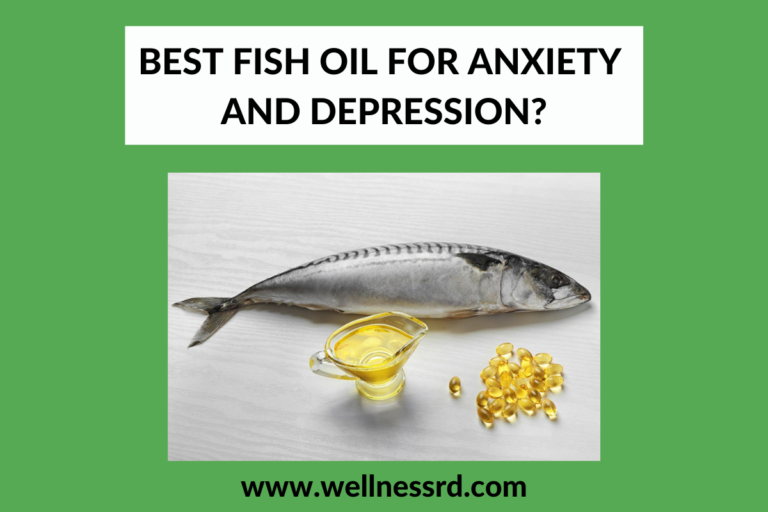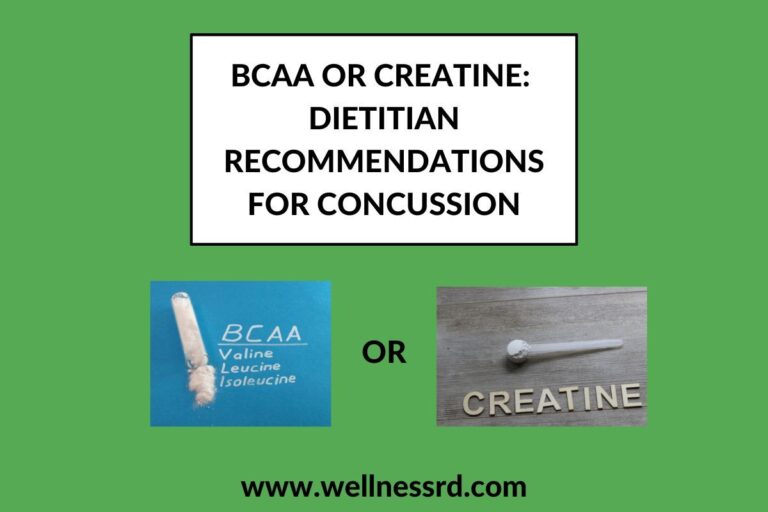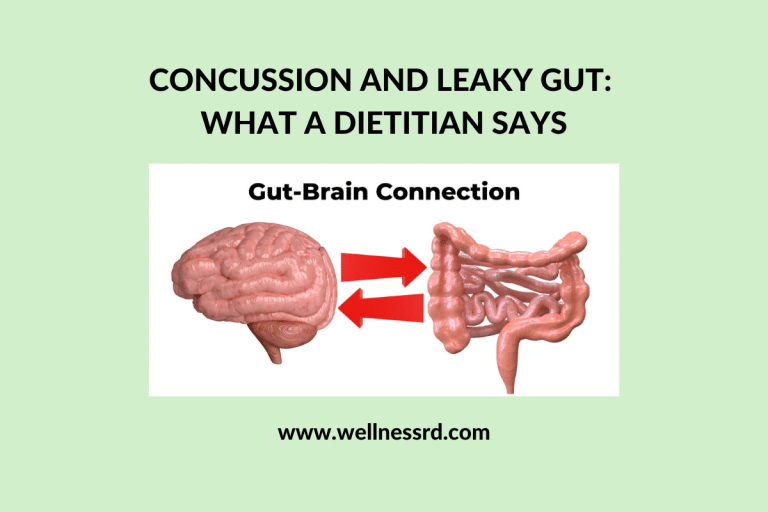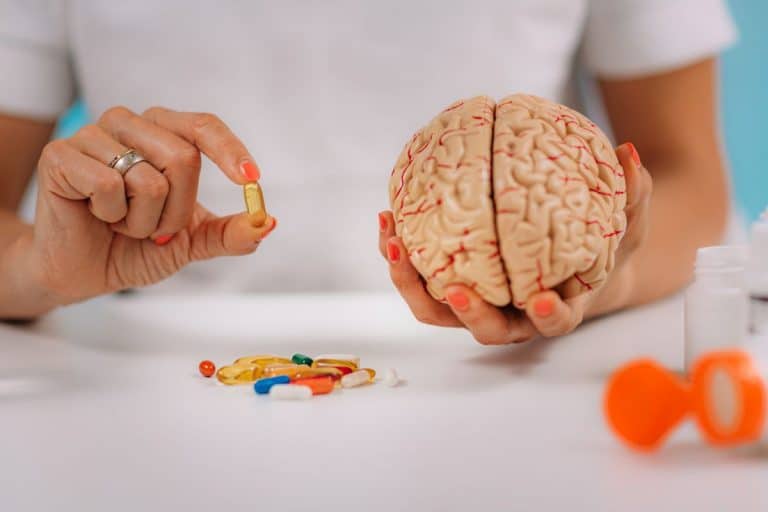L-Theanine for ADHD: What Does the Research Say?
Have you tried L-theanine for ADHD symptoms?
Can L-theanine improve stress, anxiety, focus, attention, cognition, and sleep? That sounds amazing!
Wondering what the research says about L-theanine for ADHD?
In this article, written by registered dietitian nutritionist Amy Archer, you will learn how L-theanine can help you reduce ADHD symptoms. You will also read about the science based research on L-theanine for ADHD.
This information is for educational purposes only. As with any medical advice, always check with your doctor or healthcare professional for personal and age-appropriate recommendations.
Let’s get started.
Want a copy of this article? Click here to download a copy of this article.
Table of Contents
What is L-Theanine?
L-theanine is a naturally occurring amino acid found in green tea and some mushrooms.
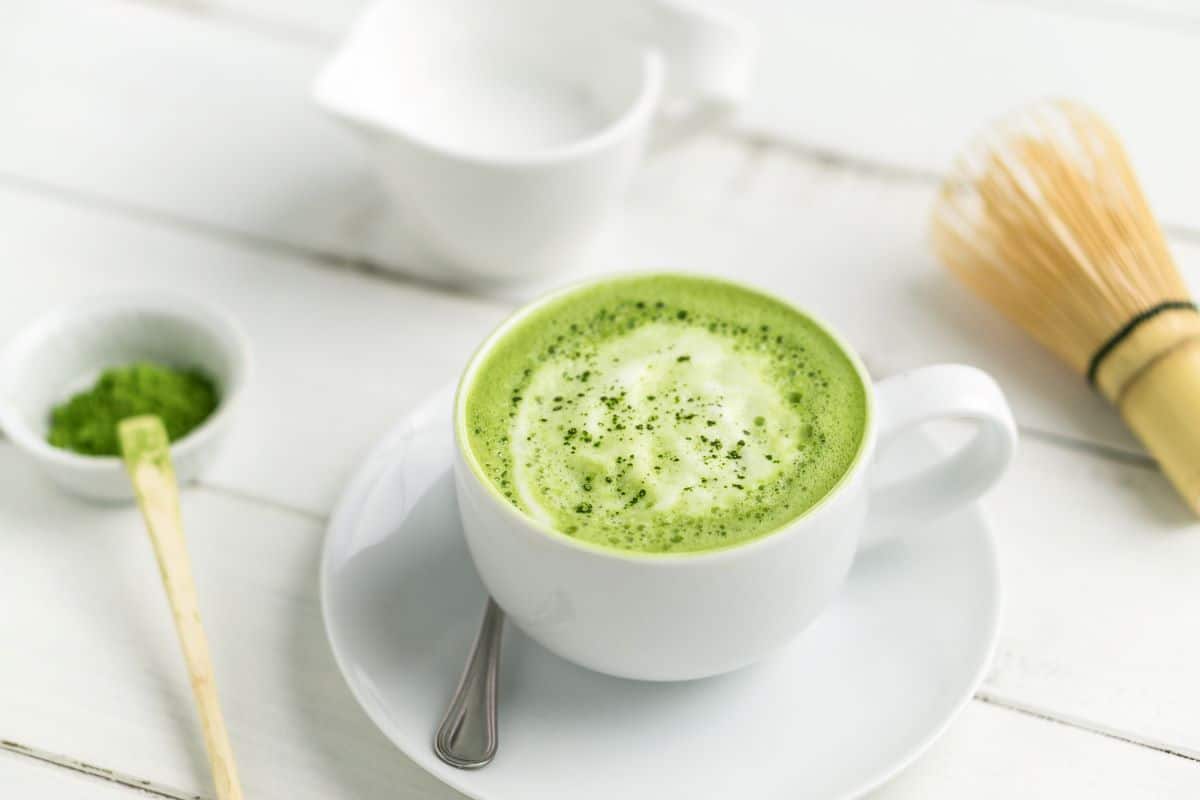
In the past several years, L-theanine (also called theanine) has become known for its health benefits (1).
Some of the potential benefits of L-theanine are as an (2):
- Antioxidant
- Immune booster
- Anti-stresser
- Antitumor
- Anti-aging
- Antimicrobial
- Anti-inflammatory
- Anti-anxiety
How does L- theanine have all these benefits?
Possible ways L-theanine may benefit the body include nitric oxide production (which allows nutrients and oxygen to travel through the body) and glutathione synthesis (an antioxidant that detoxifies the body).
Benefits my clients experience after taking L-theanine include less anxiety, better mood, a sense of calm, and promoting sleep.
Let’s dive into the effects of theanine on the brain for more details.
How Does L-Theanine Affect the Brain?
L-theanine offers a natural way to reduce symptoms of ADHD as it promotes relaxation and affects neurotransmitters. But how does it affect brain function?
L-Theanine and Brain Waves
What are Brain Waves?
Brain waves are electrical activity in the brain. There are 4 main types and each one has a different emotional state.
Individuals with ADHD often have an imbalance of brain waves.
L-Theanine Increases Alpha Waves in the Brain
A randomized controlled trial showed 50 mg L- theanine increased the alpha wave frequency band relaxing the mind (3). Another study in 2021 with 200 mg L-theanine resulted in a similar relaxation response and calming of the brain (4).
Alpha waves increase after L-theanine intake and can improve relaxation, creativity, and focus, yet it does not make you drowsy.
L-theanine increases your alpha waves and promotes a relaxed state. Other ways to increase them are by meditating, deep breathing, yoga, mindfulness, and exercise.
Does L-Theanine Affect Neurotransmitters GABA and Glutamate?
L-Theanine Boosts the Neurotransmitter GABA
A study in 2022 discussed L- theanine’s ability to pass through the blood-brain barrier and increase your brain’s supply of GABA making you feel more relaxed (5).
L-Theanine as a Glutamate Reuptake Inhibitor
L-theanine reduces the stimulating chemical messenger, glutamate, by competing with it and blocking its activity (6).
Essentially, the L-theanine blocks the glutamate receptors preventing the effects of glutamate (which is an excitatory neurotransmitter and may make you feel bad).
L-theanine is known to help you relax your mind and body without causing drowsiness.
Brain Inflammation and ADHD
Neuroinflammation (inflammation in the brain) contributes to symptoms of ADHD.
Low BDNF (Brain Derived Neurotrophic Factor) levels may lead to some of the brain dysfunction with ADHD (7).
L-theanine has been shown in studies to increase BDNF (8).
Potential Benefits of L-Theanine for ADHD
Reduces Stress and Anxiety
A randomized controlled trial in 2019 where 30 individuals took 200 mg L-theanine per day suggested it promoted mental health by reducing stress and improved cognition (9).
Some clinicians say L-theanine is a natural alternative to xanax.
When you are stressed, cortisol can increase putting you in the flight or fight mode. L-theanine can reduce your cortisol levels (10).
Better Focus and Attention
A double blind study in men and women aged 50-69 showed L-theanine contributed to improving attention, working memory, and executive function (11).
Another randomized controlled trial in 2022 resulted in improved attention 50 minutes after dosing and in a dose dependent manner, the higher dose, the more response (100, 200, and 400 mg) (12).
You can experience better focus and attention with L-theanine.
Less Hyperactivity and Impulsivity
L-theanine with caffeine intake was studied in 2020 and suggested the combination could be a potential treatment for ADHD impairments improving attention, inhibition, and cognition (13).
Try L-theanine with caffeine for improving impulsivity, calming your body yet maintaining focus (the effects of caffeine without the jitters).
Improves Cognition and Memory
A systematic review in 2021 looked at the effects of L-theanine and caffeine for cognition. They concluded that this combination enhanced cognition (14).
In another randomized study, 200 mg of L-theanine was given for 4 weeks and resulted in improved cognition as well as decreased anxiety and improved sleep (15).
If you would like to enhance your cognition and improve your focus while maintaining a sense of calm, try L-theanine and caffeine together. It takes about 30-40 minutes after ingestion for the cognitive effects.
Better Sleep
People with ADHD tend to experience sleep disturbances. A combination of magnesium and L-theanine has shown to improve sleep duration and quality (16).
A randomized controlled study investigated the use of L-theanine with boys aged 8-12 years old who had been diagnosed with ADHD. Results showed improved sleep quality with more studies needed with a larger population (17).
L-theanine can improve your sleep duration and quality of sleep.
Best Time to Take L-Theanine for Sleep
Since it takes about 30-40 minutes for L-theanine to take effect, it is best to take the supplement about 30-60 minutes before sleep.
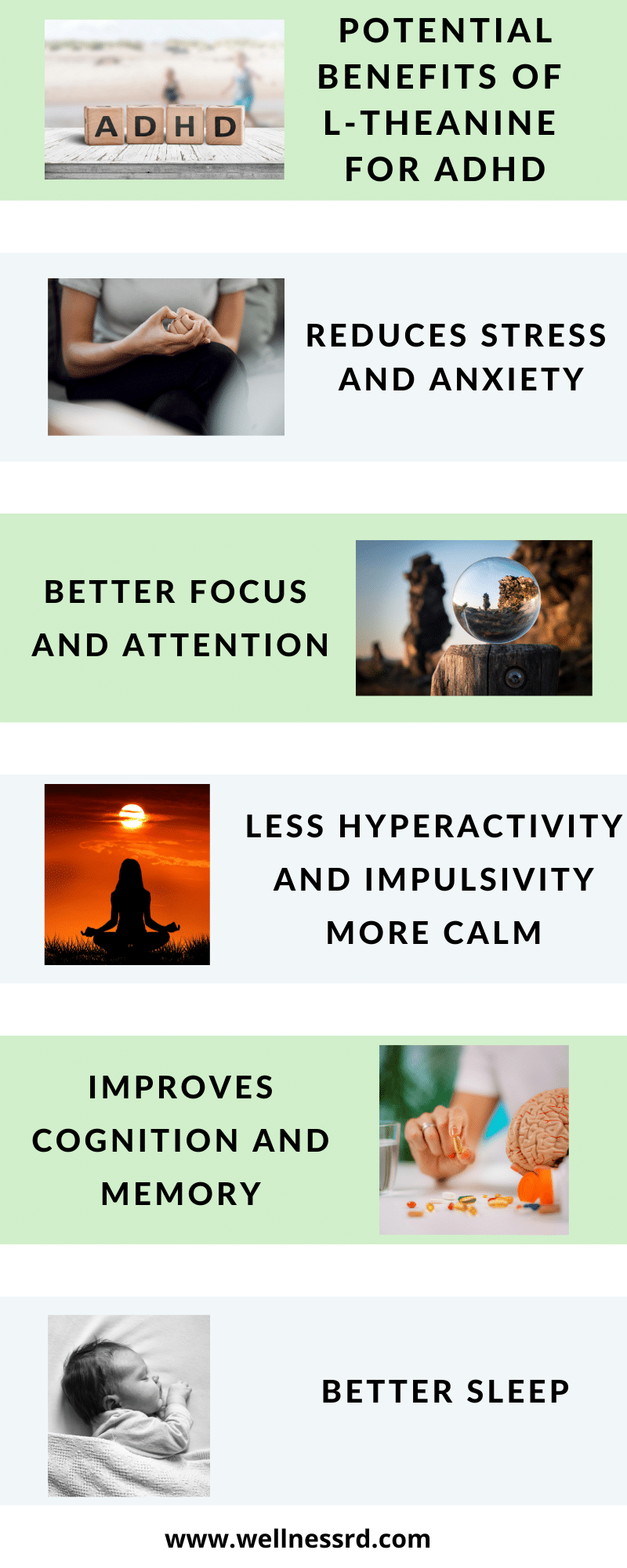
L-Theanine Side Effects
L-Theanine has minimal side effects however, it may lower blood pressure (which could be a benefit) so check in with your healthcare professional.
Although L- theanine can benefit mental health, it is not a substitute for medication.
What is a Typical Dose of L-Theanine?
Most studies have reviewed dosages between 50-200 mg for a maximum of about 400 mg per day. Always check with your healthcare practitioner for personalized dosages.
Final Thoughts on L-Theanine and ADHD
L-theanine has many potential benefits acting as an antioxidant, anti-inflammatory, and anti-anxiety supplement.
It increases alpha brain waves and GABA which may calm the body and mind. It also blocks the glutamate receptors preventing the excitatory effects.
The potential benefits of L-theanine for ADHD include:
- Reduced stress and anxiety
- Better focus and attention
- Less hyperactivity and impulsivity
- Improved cognition and memory
- Better sleep
Always check with your healthcare professional for personalized recommendations.
Read the blog for more information on functional nutrition.
Test don’t guess.
Contact me to schedule an appointment to review your personalized nutritional health.
© Amy Archer RDN, CLT, CHWC

